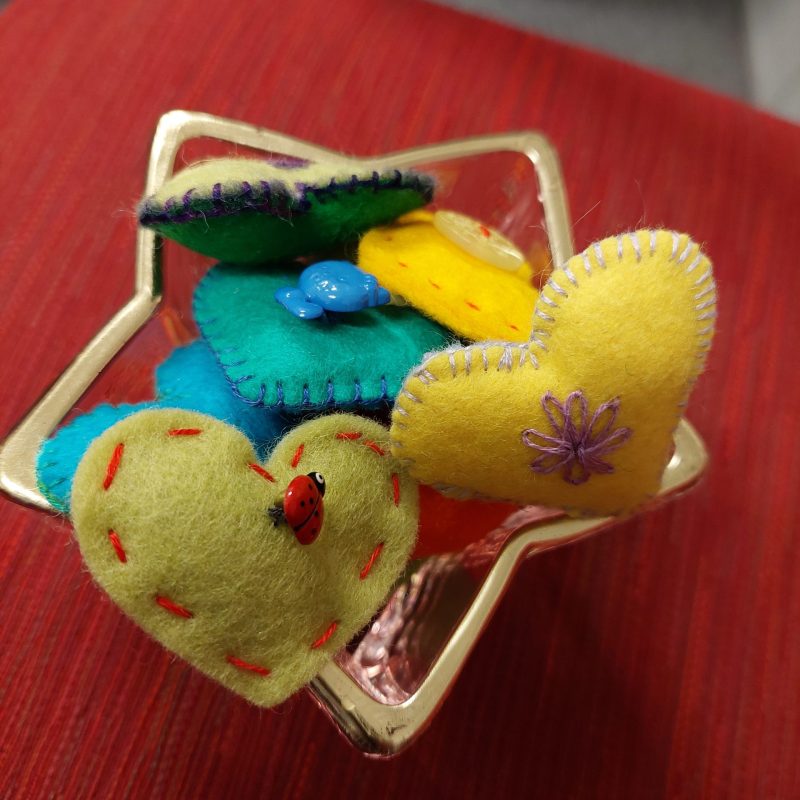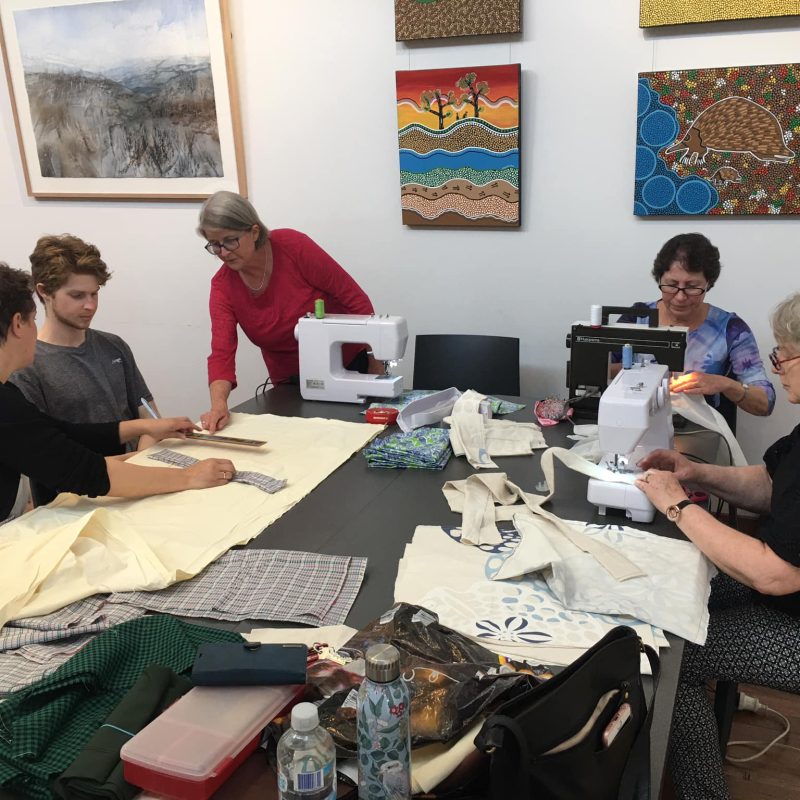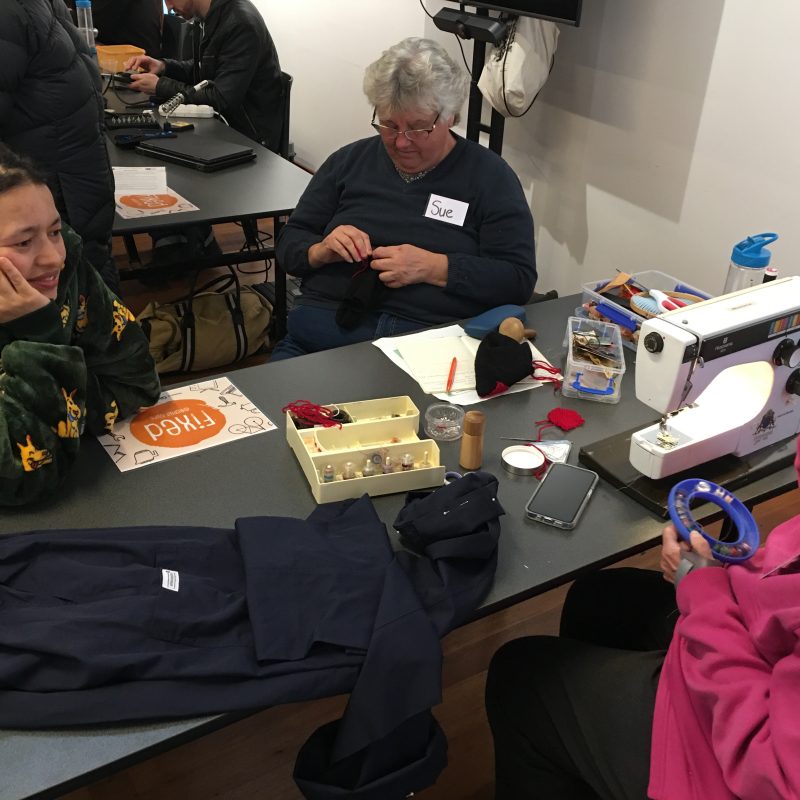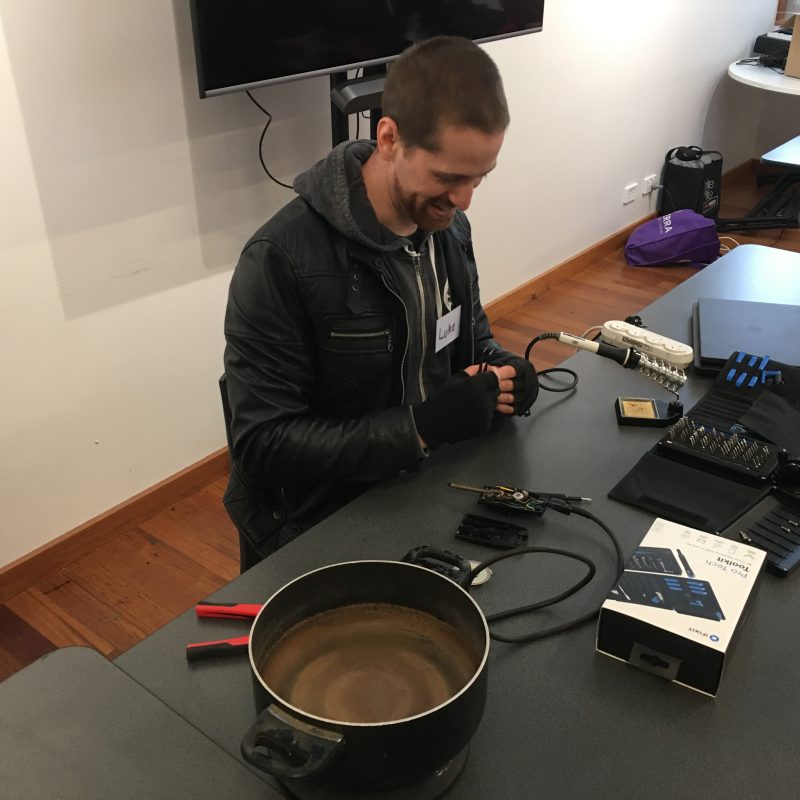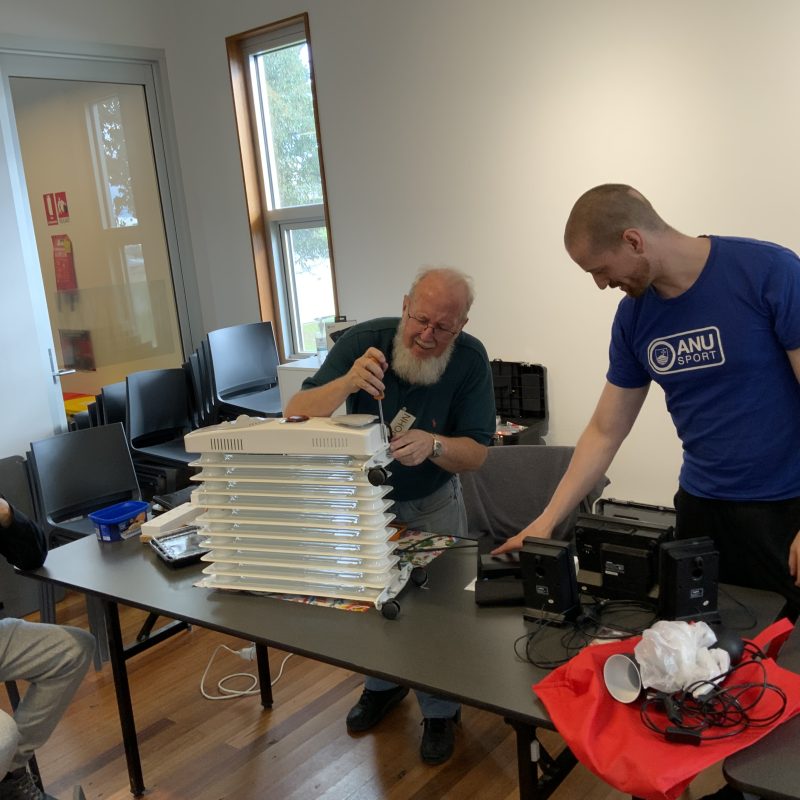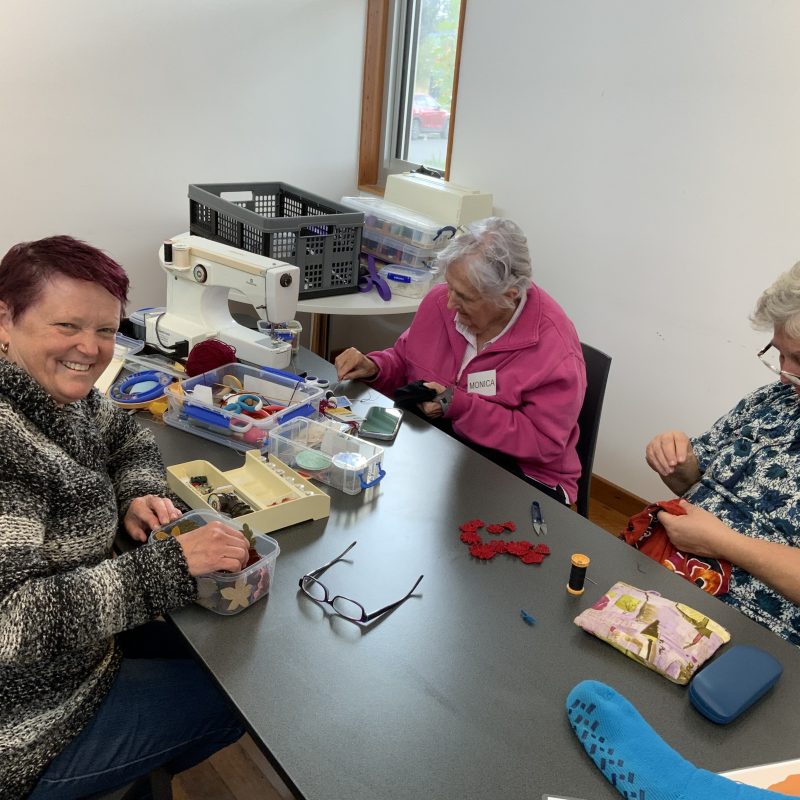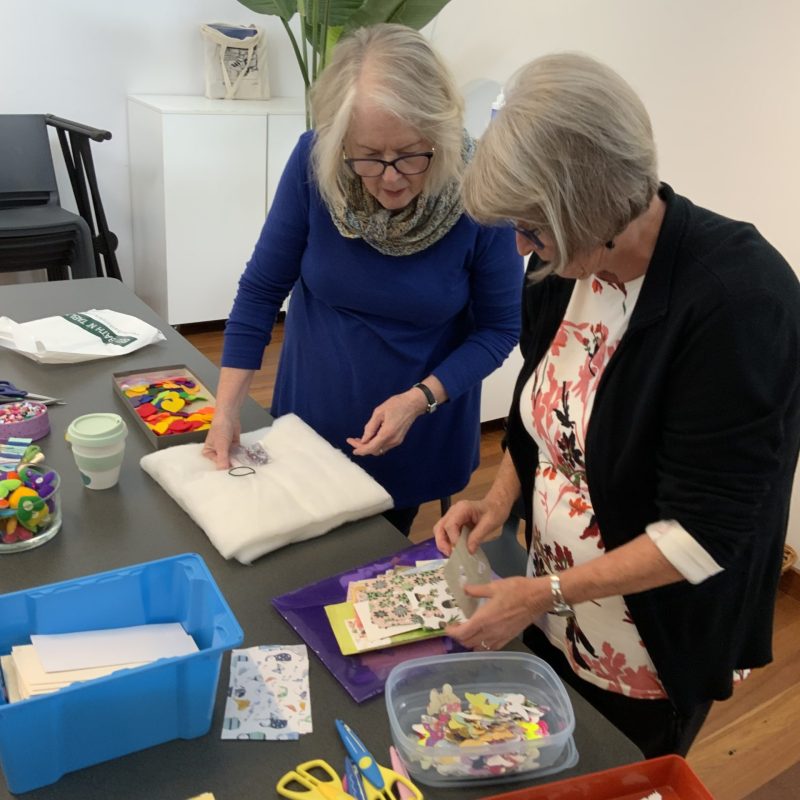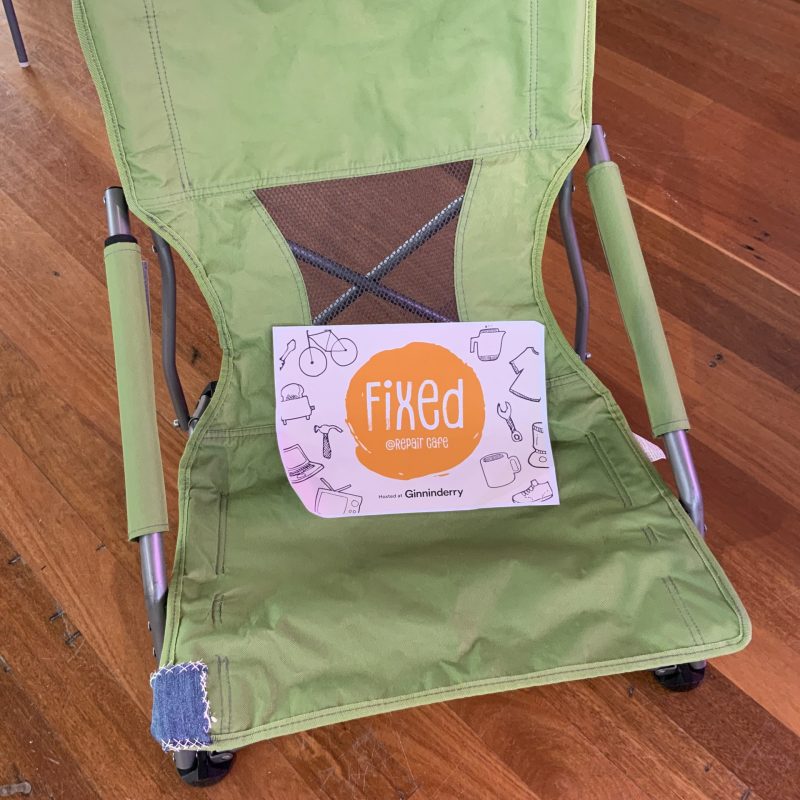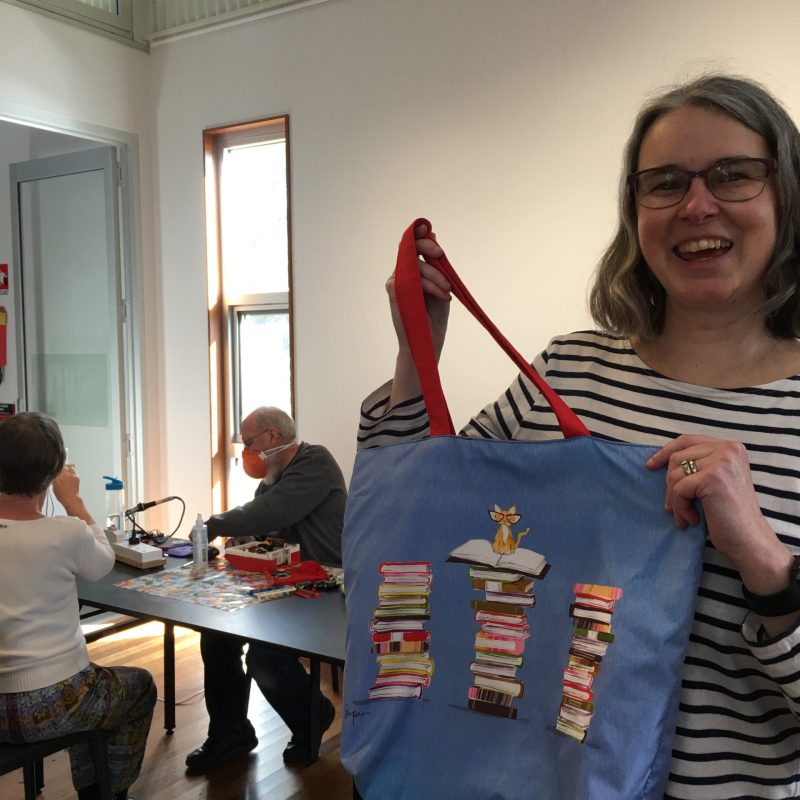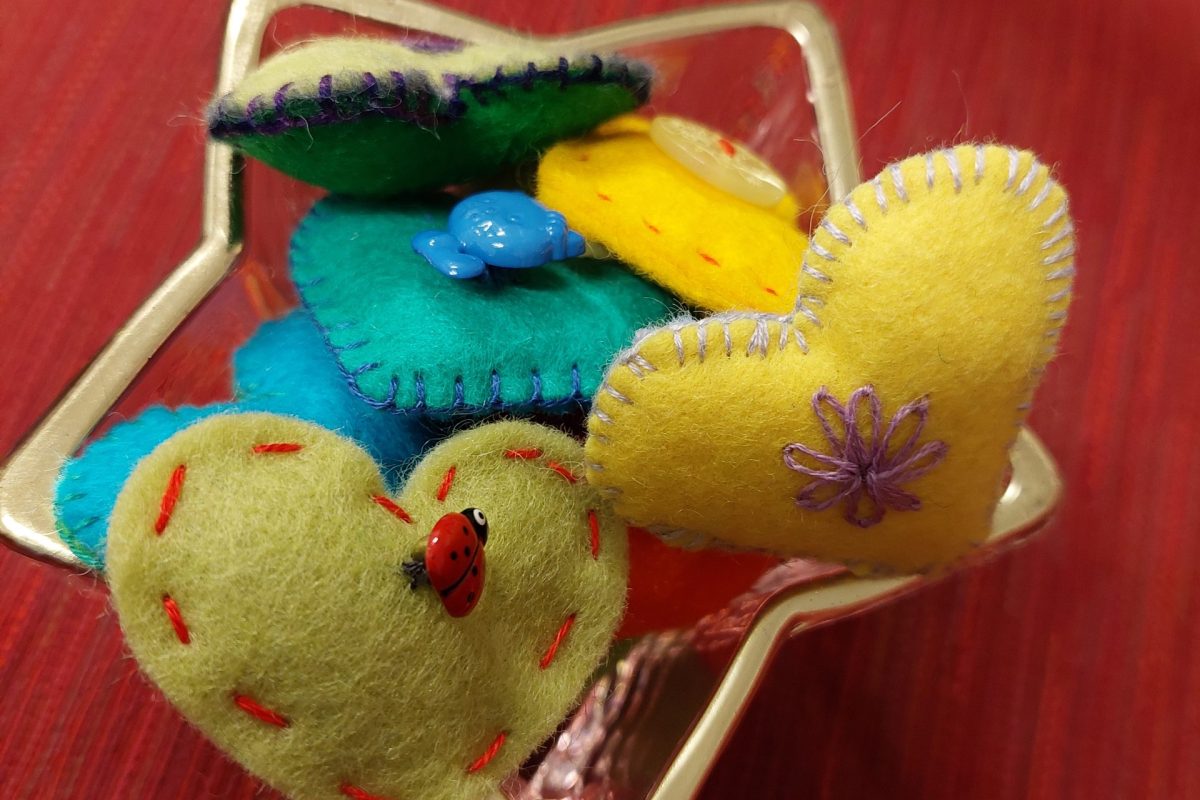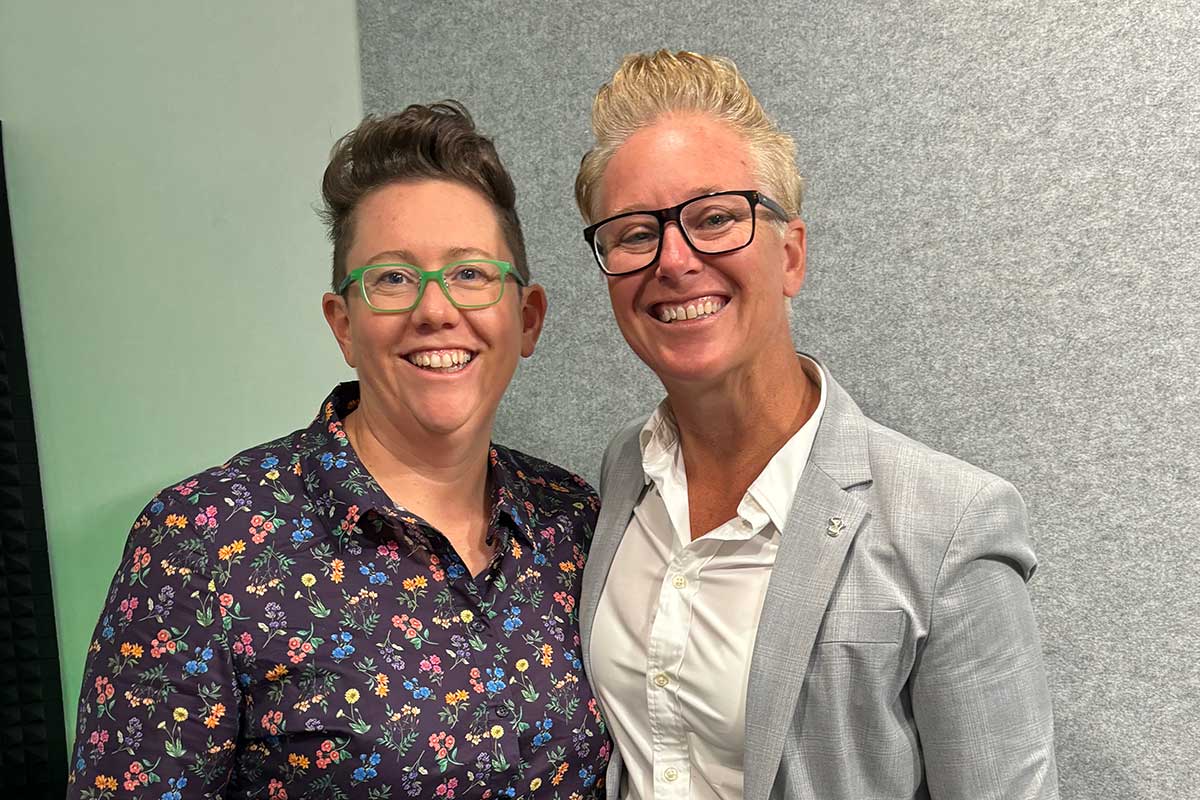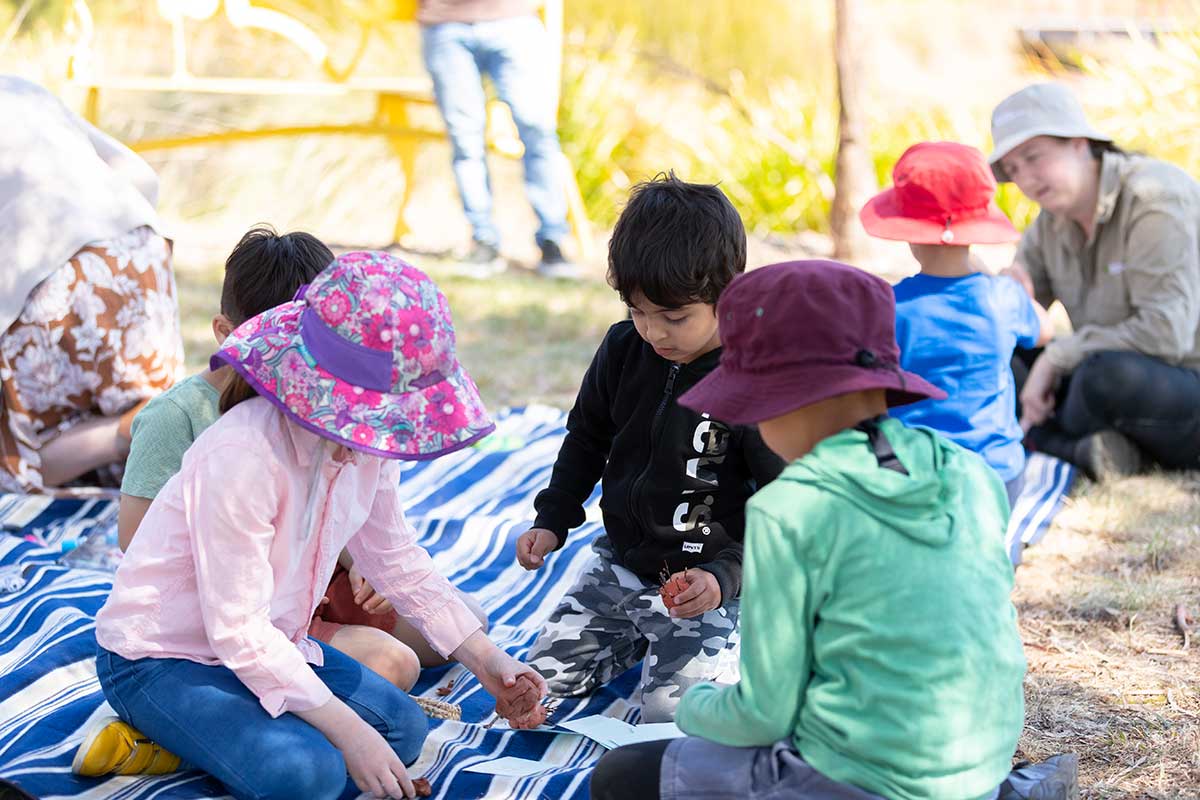Rethinking our throw-away culture at the Repair Café
It used to be that if something broke, it was easier to chuck it away and replace it with a new item. But we all know that we are existing in a fragile environment with finite resources, so many of us are now thinking more laterally, and responsibly, when faced with a breakage.
We may, in fact, take our item to a Repair Café.
The Repair Café movement started in Amsterdam in 2009 and has since spread throughout the world. There are now over 2,500 repair cafes, including six in Canberra.
The Ginninderry Repair Café started in 2021. A collaboration between SEE-Change, Ginninderry and Kippax Uniting Church, it works on the simple principle that repairers donate their time to ensure loved items which are a little worse for wear can be restored to their former glory.
When Kirsten Burns first visited the café (located in The Link) in February last year with her broken chair, she was delighted to have it fixed on the day by one of the friendly volunteers. Her experiences in administration meant she decided to take on the role of the coordinator of the café. She has watched it grow steadily—both in terms of the number of repairers on hand and the number of visitors.
“People bring in a wide range of items for repair, including clothing, electrical, computers, mechanical and, sometimes, furniture.”
On a scale of one to 10, she estimates the easiest repair items are those which are sorted to the textile table for new buttons (in contrast to repairing zippers which is a bit more complex). Easy also are replacing switches on electrical items such as table lamps. The most difficult items to repair are often furniture – with a Bentwood chair causing quite some work. Then there was an old cassette player jukebox which also required some creative solutions.
Kirsten says she loves that Repair Cafés are becoming more mainstream.
“As a society, we cannot keep using up our resources on producing new items that are discarded after only a few uses. We have to make better use of our limited resources, which means we have to care for and repair what we already have.”
Word-of-mouth recommendations from happy Repair Café visitors means more are catching onto the idea. And one of the loveliest parts of the process is that volunteer repairers encourage visitors to participate in the repair process—for example, teaching people how to darn their own clothes usually under the watchful eye of Monica Andrew, who runs the sewing table while also completing a PhD on repair cafes.
Monica says, “there is a growing awareness of the need to care for our world, which means extending the life of our belongings, but many people lack repair skills. Repair Cafés bridge this gap by bringing together skilled repairers and visitors with damaged items, resulting in a sharing of repair skills and fewer items being sent to landfill.”
Her PhD explores the role of community repair spaces such as repair cafés in clothing and textile sustainability.
Kirsten enjoys hearing about the back stories behind items, such as the much-loved designer bag rescued from an op shop which had its handle repaired and went back into high daily rotation with its owner.
There’s also a craft table where people can join in with sustainable craft activities.
“We’ve made sustainable and Easter and Christmas decorations, made little hearts with excess felt, knitted dishcloths with cotton yarn, and sewn shopping bags out of old curtains and tablecloths all while chatting up and getting to know each other.”
The team of multiskilled repairers work with repurposed materials, their own tools and tools donated to the repair cafe.
For volunteer John, formerly an electrician, the joy is in the challenge of not knowing what is going to come through the door.
“I really enjoying fixing things and finding out how things work for things that I’ve never repaired before.”
He also enjoys the camaraderie of other repairers and volunteers, Karyl, Aimee, Yvonne and Lyn, Monica, Annie, Sue and Luke—all of whom make a meaningful impact on the community and have fun doing so.
The Repair Cafe runs the first Sunday of every month, from 2-4pm at The Link, 1 McClymont Way, Strathnairn. Find it on Facebook @RepairCafeGinninderry
